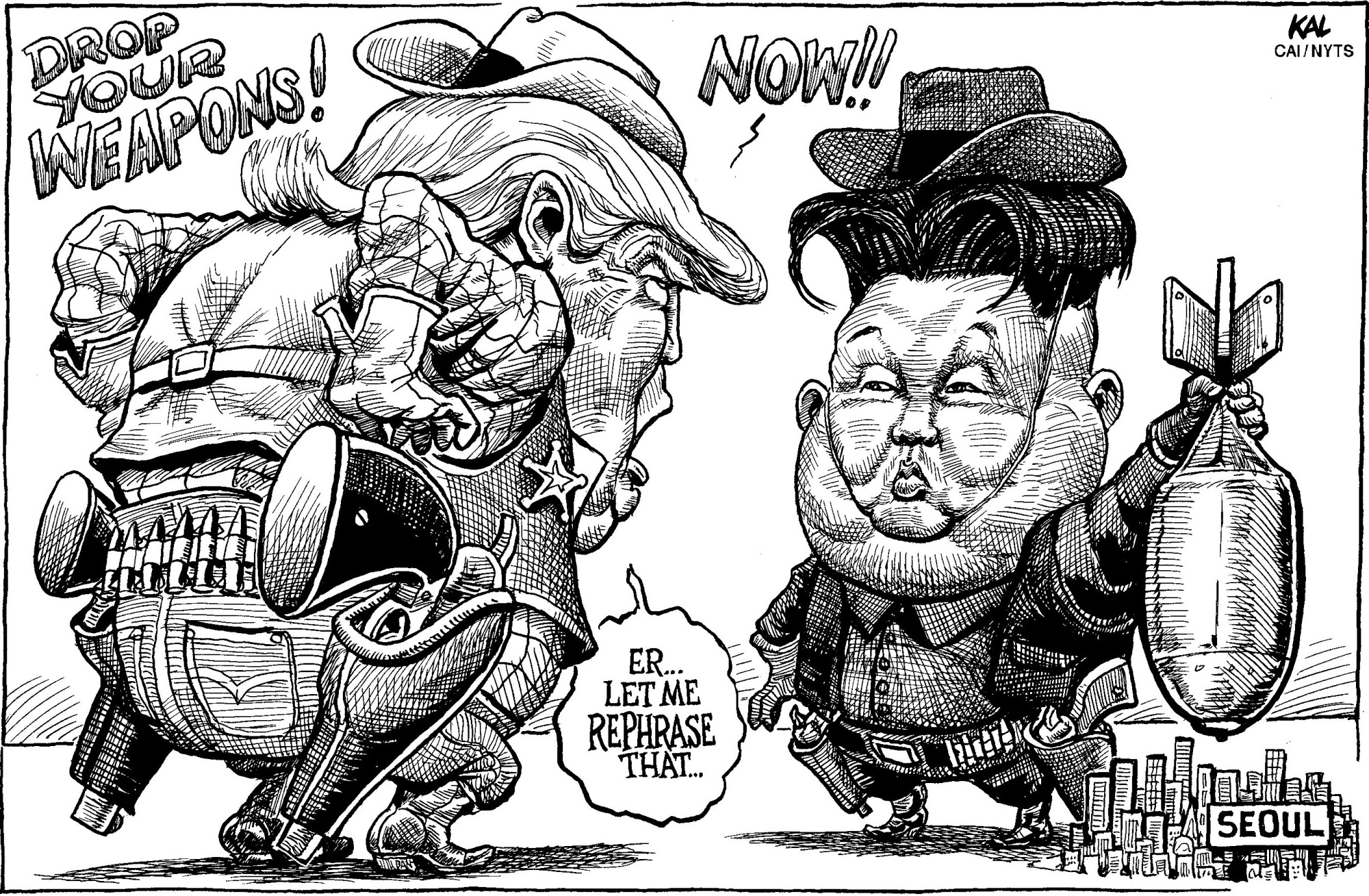Last month, North Korea went a couple of weeks without launching any missiles or testing nuclear weapons. That short interval was enough to inspire U.S. Secretary of State Rex Tillerson to declare that North Korean leader Kim Jong Un was showing "restraint." Perhaps, Tillerson concluded, Kim is ready to engage in dialogue. To some extent, he may be right.
To be sure, claims that the North was showing restraint were clearly premature: North Korea has since fired three short-range ballistic missiles from its east coast into the sea on Aug. 26, launched a ballistic missile over northern Japan on Aug. 29 and on Sunday tested its most powerful nuclear bomb yet. Tillerson's optimism about such a short pause reflects the pressure diplomats face in reassuring allies — and, in Tillerson's case, his boss, U.S. President Donald Trump — and easing tensions with enemies.
Nonetheless, Tillerson is probably right that North Korea is ready to talk to the United States — but only as one nuclear-weapons state to another. What the country's leaders are patently not ready for is to meet America's own requirement: that negotiations are based on the international commitments made in 2005, at the end of the fourth round of the so-called six-party talks.



















With your current subscription plan you can comment on stories. However, before writing your first comment, please create a display name in the Profile section of your subscriber account page.